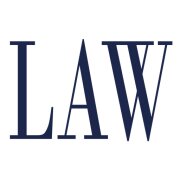Best Pension Lawyers in Botswana
Share your needs with us, get contacted by law firms.
Free. Takes 2 min.
Or refine your search by selecting a city:
List of the best lawyers in Botswana
About Pension Law in Botswana
Pension law in Botswana is a crucial area of legal and financial planning. It encompasses the rules, regulations, and guidelines that govern how pensions are managed, preserved, and distributed among retirees and employees. The framework aims to secure financial stability for individuals after retirement and is overseen by regulatory bodies like the Non-Bank Financial Institutions Regulatory Authority (NBFIRA). This ensures that funds are managed responsibly and that individuals receive their due benefits upon retirement.
Why You May Need a Lawyer
There are several scenarios where consulting a lawyer specializing in pension law can be beneficial. Individuals may require legal assistance if they encounter discrepancies in their pension payouts, face disputes related to pension entitlements during marital dissolution or need to challenge unfair or incorrect pension contributions by their employers. Corporations may also seek legal advice to ensure compliance with pension regulations or to navigate complex pension fund mergers or acquisitions.
Local Laws Overview
Pension regulation in Botswana is primarily directed by the Pension and Provident Funds Act, which is designed to ensure the safe and efficient operation of pension schemes. Key aspects include mandatory registration of pension funds with NBFIRA, requirements for adequate funding and financial transparency, and specific guidelines on benefit payout structures. Additionally, there are tax implications associated with pension savings that both employees and employers need to be aware of, ensuring legal and financial obligations are met.
Frequently Asked Questions
What is the Pension and Provident Funds Act?
This is a critical piece of legislation governing the operation and regulation of pension and provident funds in Botswana, ensuring protection for fund members and financial integrity of the funds.
Who is eligible for a pension in Botswana?
Eligibility typically depends on employment status and the specific rules of the pension plan established by the employer. Generally, it includes full-time employees within a certain age range who have contributed to a pension scheme.
How are pension funds managed in Botswana?
Pension funds are managed by trustees who ensure compliance with legal regulations and financial goals. They may work alongside fund managers and financial advisors to maximize returns for beneficiaries.
What happens to my pension if I change jobs?
Usually, you have options like leaving the funds in the existing scheme, transferring to a new employer's pension fund, or transferring to a personal retirement annuity. Consulting a lawyer can clarify the best choice.
Are my pension benefits taxable?
Pension benefits may be subject to tax, although there are tax exemptions and reliefs available. Understanding Botswana’s tax laws on pensions is critical, and legal advice is recommended.
Can I access my pension early?
Early access to pension funds is generally restricted to avoid misuse of retirement savings. However, certain circumstances like severe financial hardship might allow for exceptions, subject to legal guidelines.
What should I do if there is a discrepancy in my pension payout?
Consulting a legal professional is advised, as they can review the terms of the pension plan and represent you in disputes, ensuring your rights are protected.
How can I ensure my employer is contributing correctly to my pension?
Review the terms of your employment and pension scheme regularly. Reports and statements from the pension fund should be monitored to ensure compliance. Legal assistance can be sought to handle disputes.
What role does NBFIRA play regarding pensions?
The Non-Bank Financial Institutions Regulatory Authority regulates and supervises pension funds, ensuring they operate according to legal standards and are financially sound.
How are beneficiaries selected for my pension fund?
Your pension plan will typically allow you to nominate beneficiaries. It is essential to have a will or legally binding document prepared to support these designations.
Additional Resources
Various resources are available for those seeking guidance or assistance with pension-related queries:
- The Non-Bank Financial Institutions Regulatory Authority (NBFIRA) provides oversight and guidelines for pension regulation.
- The Ministry of Finance and Economic Development is involved in policy-making and legislative frameworks affecting pensions.
- Private financial advisory services can offer personalized advice and pension planning assistance.
Next Steps
If you require legal assistance regarding pension issues in Botswana, consider the following steps:
- Determine if your matter requires legal advice or can be resolved through employer or fund trustee communication.
- Gather all relevant documents, such as employment agreements, pension fund statements, and correspondence with trustees.
- Consult a lawyer specializing in pension law to evaluate your case and provide expert legal guidance tailored to your situation.
Taking these steps will help ensure that you address your pension concerns effectively while safeguarding your financial future.
Lawzana helps you find the best lawyers and law firms in Botswana through a curated and pre-screened list of qualified legal professionals. Our platform offers rankings and detailed profiles of attorneys and law firms, allowing you to compare based on practice areas, including Pension, experience, and client feedback.
Each profile includes a description of the firm's areas of practice, client reviews, team members and partners, year of establishment, spoken languages, office locations, contact information, social media presence, and any published articles or resources. Most firms on our platform speak English and are experienced in both local and international legal matters.
Get a quote from top-rated law firms in Botswana — quickly, securely, and without unnecessary hassle.
Disclaimer:
The information provided on this page is for general informational purposes only and does not constitute legal advice. While we strive to ensure the accuracy and relevance of the content, legal information may change over time, and interpretations of the law can vary. You should always consult with a qualified legal professional for advice specific to your situation.
We disclaim all liability for actions taken or not taken based on the content of this page. If you believe any information is incorrect or outdated, please contact us, and we will review and update it where appropriate.
Browse pension law firms by city in Botswana
Refine your search by selecting a city.

















